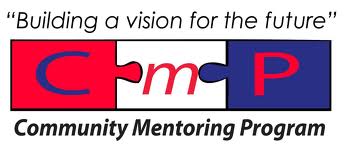 February 7, 2011 - Growing up poor increases a person's chances of health problems as an adult, but a new Cornell study shows that being raised in a tight-knit community can help offset this disadvantage of poverty. Poor adolescents who live in communities with more social cohesiveness are less likely to smoke and be obese, reports the study, published in January's Psychological Science journal.
February 7, 2011 - Growing up poor increases a person's chances of health problems as an adult, but a new Cornell study shows that being raised in a tight-knit community can help offset this disadvantage of poverty. Poor adolescents who live in communities with more social cohesiveness are less likely to smoke and be obese, reports the study, published in January's Psychological Science journal.
PAPER: Loosening the Link Between Childhood Poverty and Adolescent Smoking and Obesity: The Protective Effects of Social Capital, Gary W. Evans and Rachel Kutcher, Psychological Science, January 2011; vol. 22, 1: pp. 3-7., first published on November 24, 2010, ABSTRACT..
Environmental psychologist Gary W. Evans, recruited 326 rural upstate New York children when they were about 9 years old and their mothers. About half of the children lived in or near poverty; the rest were from middle-income families. Periodically, Evans and co-author Rachel Kutcher visited the participants to measure their health and exposure to various risk factors.
When the participants were about 17 years old, they and their mothers filled out surveys that assessed how connected their communities were and how much social control they felt they had. For example, mothers were asked to say how much they agreed that "one of my neighbors would do something if they saw someone trying to sell drugs to a child or youth in plain sight"; the teenagers were asked whether they had adults whom they could ask for advice. The teens also completed surveys on behavior, including smoking, and had their height and weight measured.
"Youth from low-income backgrounds smoked more than those who grew up in more affluent homes," the study concludes. However, if they lived in connected communities, "the effects of early childhood poverty on adolescent smoking were minimal." Evans found similar results when assessing the teens' body-mass index, a standard measure of obesity.
Evans and Kutcher believe adolescents in communities with more so-called social capital (a measure of how connected a community is and how much social control there is) may have better role models or mentors; or perhaps in a more empowered community, where people feel comfortable stopping someone else's bad behavior, the young people feel less helpless as individuals. They might believe that "you have some control over what's going to happen to you," they suggested.
Still, the authors warned, social capital can help poor youths, but it is not a remedy for the health problems associated with impoverished living in childhood. Poor adolescents, even those in communities with more social capital, are still less healthy than their middle-income peers.
"It's not correct to conclude that, if you just improve social capital, then it would be okay to be poor," Evans says.
Reference: Having a Strong Community Protects Adolescents From Risky Health Behaviors, psychologicalscience.org, 2/2/2011.
Bringing the World of Tobacco Control closer together..
PAPER: Poor adolescents who live in communities with more social cohesiveness are less likely to smoke and be obese..
Subscribe to:
Post Comments (Atom)


To Provide Public Awareness
Purpose
About Us
Contact Us
2008 HIGHLIGHTS
TOPIX PAPERS - 2008 & 2009..
Archive
-
▼
2011 (490)
-
▼
02/06 - 02/13 (24)
- U.S. DOT - bans smoking of electronic cigarettes o...
- North Dakota - House rejects cigarette tax hike f...
- Get that job in health care just quit smoking or d...
- PMI - q4 2010 business results..
- MMWR - Decrease in Smoking Prevalence --- Minnesot...
- Kelowna, British Columbia - as of February 1, 201...
- Province of Newfoundland and Labrador, Canada - to...
- e-cigarettes - delivery NOT by U.S. mail, or other...
- Washington State - to protect children from becom...
- VIDEO - Iowa - benefits of going smoke free..
- TPSAC - Menthol Report: What to Expect??
- PAPER: heavy teen viewing of TV shows with depicti...
- VIDEO - The city of West Hollywood, CA has voted...
- President Obama has reached his one year anniversa...
- South Korea - govt serious about getting smokers t...
- Denmark - housing association has plans to build ...
- Lorillard, Inc. highlights business report q4 and ...
- Sarasota, Florida - banned smoking in over 500 ho...
- PAPER: Poor adolescents who live in communities w...
- United Kingdom - tobacco companies warn tax increa...
- Malaysia - Study reveals Malaysian Indians are lea...
- Czech Republic - lower house of parliament approve...
- New Jersey - more high school kids and adults smok...
- PAPER: Giving Up Smoking Linked To Greater Happin...
-
▼
02/06 - 02/13 (24)
© Copyright Notice: The content of this website is for information education purposes only and any newsbrief may be used only as "fair use" for information/education purposes with permission of the authors and providing that original references and associated reference links are included in HTML format.
0 comments:
Post a Comment